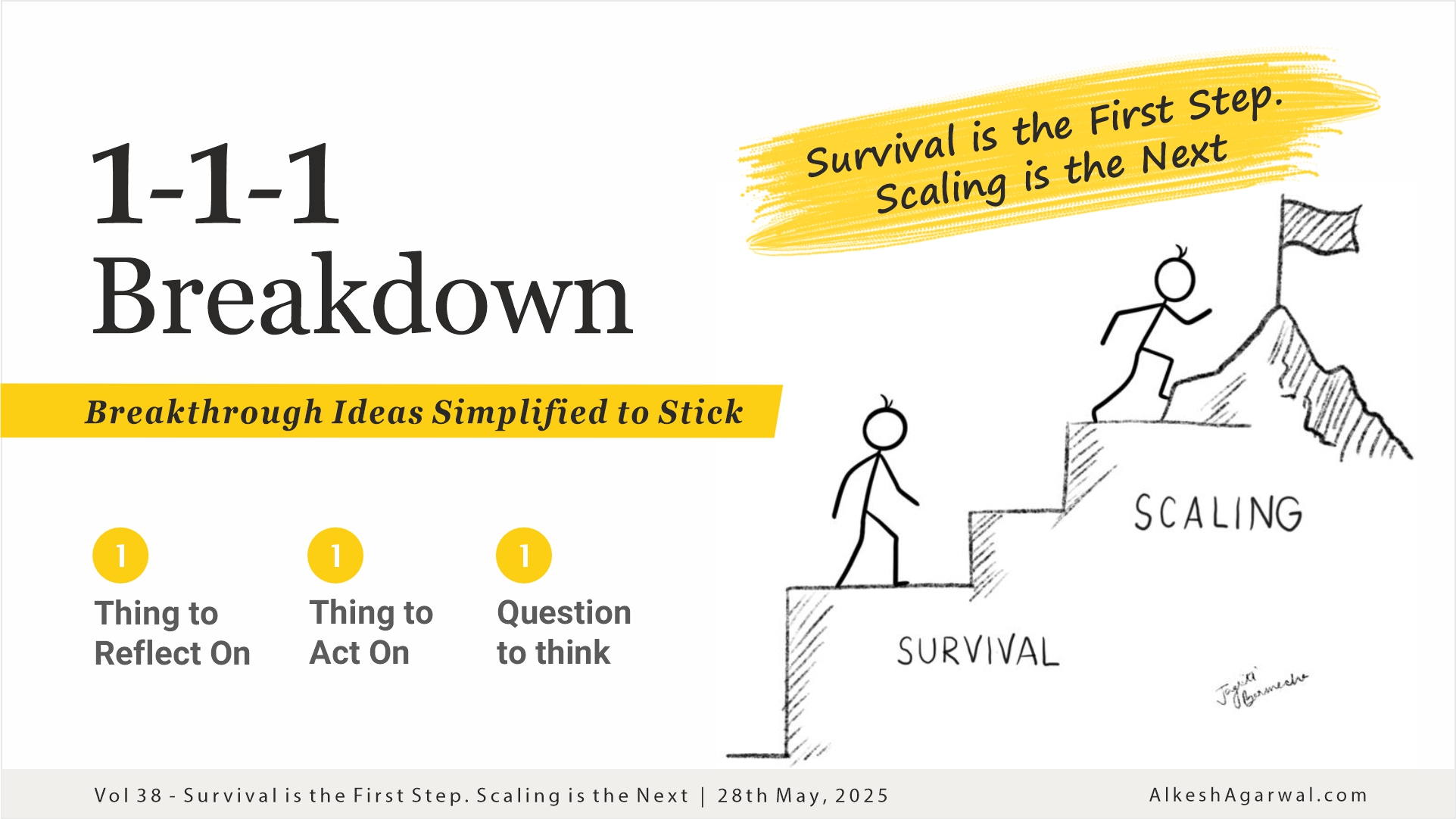
It’s tempting to measure success only by flashy growth charts, huge funding rounds, and viral launches. But here’s the unspoken truth about entrepreneurship: Your first job isn’t to scale. Your first job is to survive.
Think about it. How many businesses had massive early momentum — only to crash when the market shifted?
How many startups raised millions—only to shut down because they didn’t survive the hard quarters?
The early days of any venture are about weathering uncertainty, proving your business model, and building resilience. Once you’ve built a business strong enough to survive the rough seasons, then you earn the right to scale.
Because scaling a weak foundation just means you collapse faster.
1-1-1 Breakdown: Reflect, Strengthen, and Advance
Before dreaming about expansion, ask yourself: Is the core business healthy? Are the fundamentals strong? Are your cash flows steady enough to take risks?
→ Remember: Scaling chaos just multiplies chaos.
Instead of chasing new shiny projects, strengthen what’s already working.
Improve customer experience. Optimize operations. Build cash reserves. Make sure your base is solid.
→ Do this now: Identify ONE weak spot in your business that could collapse under growth pressure—and start reinforcing it this week.
If the answer isn’t a confident yes, that’s where your work begins.
Your Next Big Leap (NBL):
The leap to scale only works when survival is guaranteed.
In the Next Big Leap mindset, you focus first on unbreakable strength. Then, and only then, you pursue unstoppable scale.
Survival is your first win. Scaling is your next masterpiece. 🎯
Thanks for Reading!
Hey! I’m Alkesh Agarwal.
An entrepreneur and investor who believes that as we dive into 2025, let’s take bold leaps, embrace growth, and focus on what truly matters – Health, Happiness, and meaningful progress. Here’s to making every step of the journey count!
Read: The Hard Thing About Hard Things by Ben Horowitz – A brutally honest guide to surviving the tough times in business.
Watch: This TED Talk on “The single biggest reason why start-ups succeed” by Bill Gates – Why perseverance beats talent over the long run.
Try: Asana – Manage your priorities and stabilize operations before you expand.


